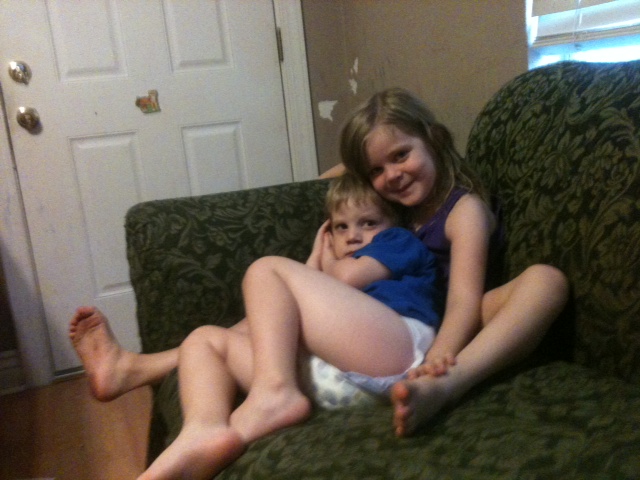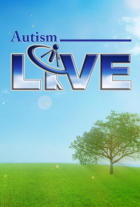Shannon Penrod of the internet TV show Autism Live in California contacted me last night to invite me to be on the show to discuss my blog letter to Joe Scarborough. My segment is at the 1 hr, 15 minute mark. Special thanks to Shannon for an easy and pleasant live interview experience. Please click on the image to see the clip. 🙂
Monthly Archives: July 2012
Dear Joe Scarborough – On Autism and Violence
Dear Joe Scarborough,
Today, you made some comments that infuriated the autism advocacy world.
You stated:
“As soon as I hear about this shooting, I knew who it was. I knew it was a young, white male, probably from an affluent neighborhood, disconnected from society — it happens time and time again. Most of it has to do with mental health; you have these people that are somewhere, I believe, on the autism scale…I don’t know if that’s the case here, but it happens more often than not. People that can walk around in society, they can function on college campuses — they can even excel on college campuses — but are socially disconnected.”
There are a lot of angry folks out there who sincerely believe you are ignorant, fear mongering, reckless, and using your own child’s diagnosis as a prop for your ratings.
And you know what? I’m not one of them. And that’s not because I am a fan. I don’t watch a lot of TV these days and haven’t watched your show enough to have an opinion of you one way or the other.
So no, I don’t think you are evil. I think that, like every parent of every child, you probably love yours just as much as I love mine. And I’m not so jaded in my political views that I assume you and other talking heads don’t care about real people and the effects of your commentary. I may be naive, but, like Anne Frank, I think most people are essentially good at heart. I’m going to have faith that applies to you as well.
But I do think that you fell victim to one of the easiest pitfalls of personal experience — that of envisioning yourself as an expert. Probably all of us in the autism parenting/advocacy world do that to some degree when encountering the subject open for discussion. Herein lies the problem. Unlike most of us, you have the ear of the world. And a world that may simply be distractedly listening in while cutting up a salad and listening for the rinse cycle. They likely will not follow what I believe is your hypothesis — that of communication disorders being linked to social ostracization and social rejection often being a cause of young mass murderers. I’m hoping that this what you meant — that any noticeable difference can lead to social rejection/bullying and that the sometimes subsequent depression can be a breeding ground for hatred and retaliatory violence.
But, Mr. Scarborough, that’s not what you said. What you said was so general as to imply that autism is directly related to mass murder. And this scares me. Because much of the public will perceive this to mean that autistics are inherently dangerous to the general population. When, in reality, it is the opposite. Statistically, persons with developmental disabilities and mental illness are more likely to be harmed by the rest of us. They are more likely than you or me to be harassed, bullied, abused, and defrauded. And, if the public suddenly begins to fear them, we can be assured more of the same. For it is always fear that begets violence. Whether it was your intention or not, you have now contributed to that fear. For the sake of my autistic child, yours, and everyone else’s, I am now more afraid than before you spoke.
 Mr. Scarborough, if you unintentionally misspoke, please correct it. Clarify your position, and take some time to do some damage control — not on your own behalf, but on behalf of your son and the autistic community you have mischaracterized. And, if you spoke intentionally, then I challenge you to do some research on links between violence and autism and report back. I think you might find yourself surprised.
Mr. Scarborough, if you unintentionally misspoke, please correct it. Clarify your position, and take some time to do some damage control — not on your own behalf, but on behalf of your son and the autistic community you have mischaracterized. And, if you spoke intentionally, then I challenge you to do some research on links between violence and autism and report back. I think you might find yourself surprised.
You, sir, have an opportunity to do what most of us as parents of spectrum children cannot — brighten the path of our special children by educating and preparing the world to understand them.
That is a blessing that most mothers and fathers of autistic children would not cast aside lightly. Neither should you.
Sincerely,
Let’s Hear It For the Boy!
 Progress in developmentally disabled children is a funny thing. A lot like getting fat really — a subject I have enough experience with in which to opine. You don’t see weight gain in terms of ounces. Instead, it steadily creeps up on you. You aren’t sure whether the pants you just put on are really tighter or if they just shrank in the dryer. It could be that you are retaining water, after all. But the ounces keep building up until one day you can actually see it. Loved ones, seeing you every day, may or may not notice. But the nurse at the doctor’s office dutifully records it on her little chart. And that obnoxious co-worker you make it a habit to avoid keeps suggesting you join everyone for Zumba. (Which, in terms of tolerable behavior, is the outside of enough really.)
Progress in developmentally disabled children is a funny thing. A lot like getting fat really — a subject I have enough experience with in which to opine. You don’t see weight gain in terms of ounces. Instead, it steadily creeps up on you. You aren’t sure whether the pants you just put on are really tighter or if they just shrank in the dryer. It could be that you are retaining water, after all. But the ounces keep building up until one day you can actually see it. Loved ones, seeing you every day, may or may not notice. But the nurse at the doctor’s office dutifully records it on her little chart. And that obnoxious co-worker you make it a habit to avoid keeps suggesting you join everyone for Zumba. (Which, in terms of tolerable behavior, is the outside of enough really.)
Developmental changes are just like that. You keep looking for miracles. Sudden “A ha!” moments of clarity or skill. You pray for your Helen Keller at the water pump kind of moment, but it’s not what you get. The reality is more like this:
Parent 1: “Did he just _______?”
Parent 2: “I don’t know. It sounded like it, but it could have been _________.”
Parent 1: “Only this time he did _______.”
Parent 2: “Yeah, I noticed that too. Let’s see if he’ll do/say it again.”
Parent 1: “He’s not paying attention anymore.”
Both: Shrug shoulders…
Life with Callum has been like this lately. We see little bits of progress, then question them, before ultimately deciding that – yeah- things are happening in terms of his receptive language, efforts to communicate consistently, social interaction, joint attention, motor skills, etc. It’s subtle, but it’s there. And, in the reverse of weight gain, we are actually thrilled to pieces at the number of people who are beginning to notice the changes as well.
A few weeks ago, Callum began taking us by the hand when he needed a diaper change. If we notice the need first, all we have to say is, “Come on, Callum, let’s go change your pants.” And he reaches out with his little hand and walks with us to the changing table. What impressed me even more happened a little after that. He had a little medical problem (for the sake of brevity, I won’t elaborate) requiring frequent changes and some topical ointment. Each time, it was uncomfortable. In the past, he would fight, not understanding mama was trying to make it better. But, suddenly, he began communicating to me the need for a change – even though it hurt enough to make him fuss and cry a bit. Whether this is receptive language or cause and effect or whatever one wants to call it, I know it is progress.
He has also begun to seek out more eye contact – for interaction rather than food. He also appears, with his very few words, to be having a bit of an argument with us when he can’t have something. Not screaming, but attempting to communicate. He has started interacting with his sister a bit more, giggling with her on occasion and tolerating her pulling him after her to play a role in something she wants. He doesn’t understand her play at all, but he is handling her efforts admirably. He seems to be understanding the concept of waiting a bit for something he wants. And, in the most heart-warming development of all, has begun cuddling with his big sister. She, 5, keeps forcing her affections on him and wanting to hold him while watching TV. And he –lets her and even seems to enjoy it!
Yes, progress is microscopic — until suddenly there is enough to see and celebrate. And it’s great when it happens.
But joy? Now that’s a choice. You can either choose to see how far you have to go or you can choose to see how far you’ve come. This is a journey in which you shouldn’t always keep your eyes on the road ahead. Otherwise, you’ll miss out on enjoying the charming little companion beside you.
Lipstick Kisses: In Praise of ESE Instructional Assistants
 Today was my three-year old’s last day of Pre-K ESE summer school. (In our school system, it is but three short weeks.) When we went to pick him up, several of the ladies at the county’s exceptional education school (where the program is housed each summer) came out to tell us how much they loved having him, how sweet he was, and how much they would miss him. When my husband remarked that Callum’s little cheeks had lipstick marks on them, one went on about how “kissable” he is. Then the instructional assistant who normally works with Callum during the school year at his home school started laughing and bantering with the ladies from this school about how they needed to back off and they that couldn’t have “her baby”. Oh yeah. It warmed this mama’s heart alright.
Today was my three-year old’s last day of Pre-K ESE summer school. (In our school system, it is but three short weeks.) When we went to pick him up, several of the ladies at the county’s exceptional education school (where the program is housed each summer) came out to tell us how much they loved having him, how sweet he was, and how much they would miss him. When my husband remarked that Callum’s little cheeks had lipstick marks on them, one went on about how “kissable” he is. Then the instructional assistant who normally works with Callum during the school year at his home school started laughing and bantering with the ladies from this school about how they needed to back off and they that couldn’t have “her baby”. Oh yeah. It warmed this mama’s heart alright.
And it got me to thinking about the role instructional assistants (or if you prefer – teacher’s aides) play in the lives of our special children. As a teacher, I already knew much we need them in our schools and how they manage to keep things running smoothly. Yet, they are paid next to nothing. I’ve known instructional assistants who, after the cost of insurance premiums for their family, receive paychecks of maybe thirty dollars bi-weekly.
But these individuals are an important part of our children’s schools and lives. This is not to underplay the importance of their regular and exceptional education teachers. But those teachers are insanely busy crossing T’s and dotting I’s these days. They struggle to teach the state curriculum while having to plan for a wide variety of accommodations and teaching methods to best reach their students. Too often, they don’t have the time they would like to have to meet the individual needs of our children during the course of a typical school day. Not with all the paperwork, meetings, and other silliness imposed upon them by The Powers That Be.
That’s where the instructional aide comes in. In the elementary school, they are often the ones rocking an overwhelmed child in a corner, feeding those children not yet able to do so, and giving out extra love and hugs. At the secondary level, they are the ones who jump in to defend a misunderstood child from other students and even faculty. They are the ones sitting outside at a bench with a child who has just been given a time out, listening and reasoning with them. They get to know the children individually in ways the overworked and multi-tasked teachers are unable. Good instructional assistants see themselves as teachers as well and are invaluable. Yet they aren’t often included in Teacher Appreciation Week.
So today I’d like to say a big thank you to Callum’s instructional assistants and all the dedicated exceptional education assistants of the world. Thank you for loving our babies. Thank you for caring that our children require their crackers and bread to be of a uniform shape. Thank you for seeing in them the beautiful, loving, and valuable souls we know them to be. Thank you for making it a little easier to place a defenseless child into the hands of another. And for lipstick marks. Especially for those.
You brighten their days and lighten ours. You are a remarkable blessing indeed.







